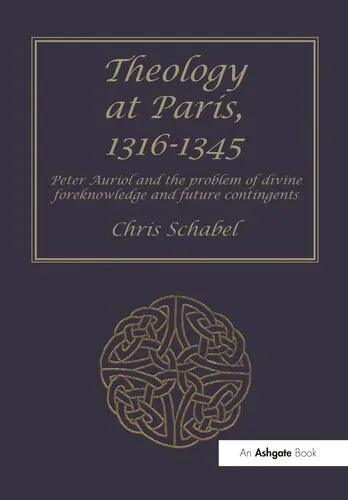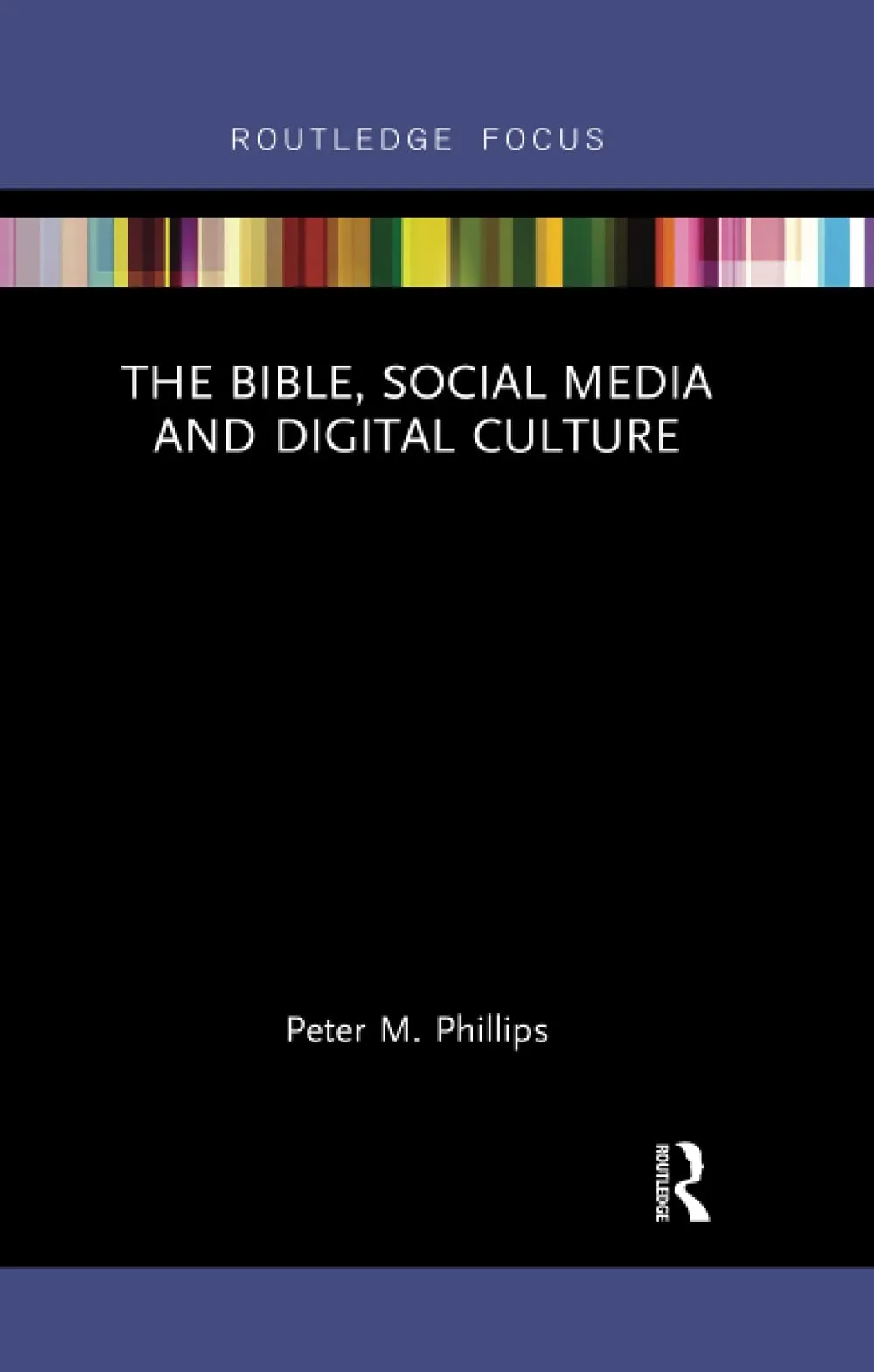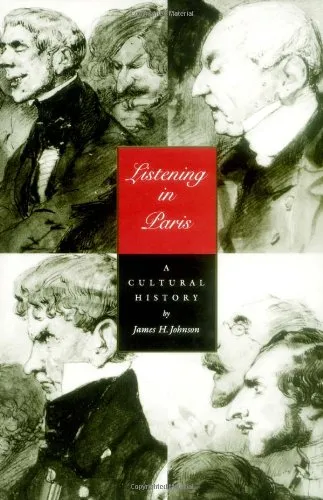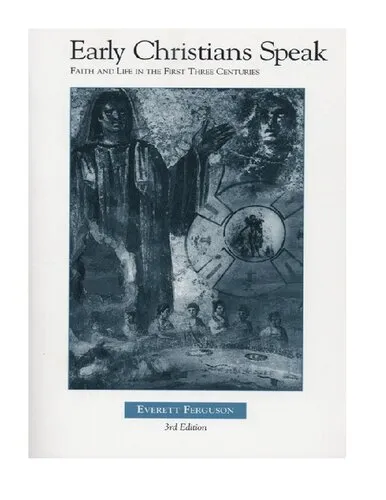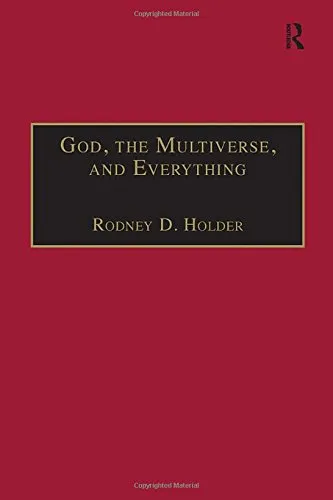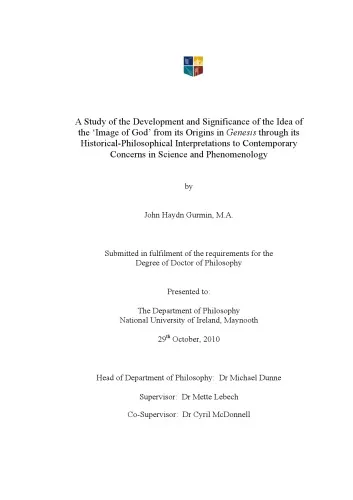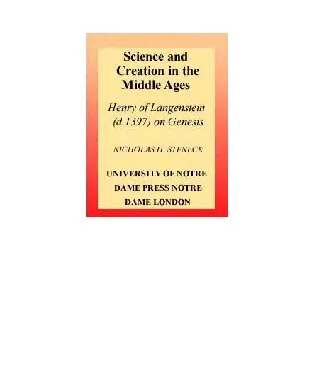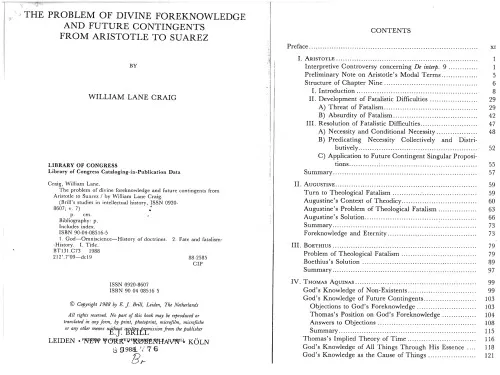Theology at Paris, 1316–1345: Peter Auriol and the Problem of Divine Foreknowledge and Future Contingents (Ashgate Studies in Medieval Philosophy)
4.5
بر اساس نظر کاربران

شما میتونید سوالاتتون در باره کتاب رو از هوش مصنوعیش بعد از ورود بپرسید
هر دانلود یا پرسش از هوش مصنوعی 2 امتیاز لازم دارد، برای بدست آوردن امتیاز رایگان، به صفحه ی راهنمای امتیازات سر بزنید و یک سری کار ارزشمند انجام بدینکتاب های مرتبط:
مقدمهای بر کتاب "Theology at Paris, 1316–1345: Peter Auriol and the Problem of Divine Foreknowledge and Future Contingents"
کتاب Theology at Paris, 1316–1345: Peter Auriol and the Problem of Divine Foreknowledge and Future Contingents اثری جامع و دقیق در زمینه فلسفهٔ قرون وسطی است که به بررسی عمیق آثار و اندیشههای پتر آئوریول میپردازد. آئوریول یکی از برجستهترین متفکران الهیات قرن چهاردهم میلادی بود که نقش کلیدی در توسعه مباحث مربوط به divine foreknowledge و future contingents ایفا کرد. این اثر تلاش دارد تحلیل جامعی از دوران زندگی و فعالیتهای آئوریول در دانشگاه پاریس ارائه کند و زمینههای فکری او را در تقابل با دیگر متفکران همعصر بررسی نماید.
خلاصهای از کتاب
این کتاب در چهار بخش اصلی تنظیم شده است. بخش اول به معرفی زمینههای تاریخی و فرهنگی دانشگاه پاریس در اوایل قرن چهاردهم اختصاص دارد. در این قسمت، نویسنده به تشریح وضعیت سیاسی، اجتماعی و مذهبی زمانه و تأثیر آن بر مطالعات الهیاتی میپردازد. بخش دوم به زندگی و آثار پتر آئوریول میپردازد و نقشی که او در بحثهای فلسفی و الهیاتی ایفا کرد را به تصویر میکشد.
بخش سوم به تحلیل دقیق نظریهٔ آئوریول در مورد divine foreknowledge و future contingents اختصاص دارد. در این فصل، نظریات او در تقابل با آموزههای آکویناس، اسکوتوس و ویلیام اوکام بررسی میشود. نویسنده دیدگاه آئوریول را در زمینه علم پیشین الهی و تأثیر آن بر آزادی انسان موشکافی میکند.
در نهایت، بخش چهارم بررسی انتقادی از تأثیرات نظری و عملی ایدههای آئوریول بر متفکران بعدی ارائه میکند و راه او را در تحول اندیشهٔ الهیاتی در قرنهای بعد روشن میسازد.
نکات کلیدی
- تحلیل جامع مفاهیم divine foreknowledge و future contingents در الهیات مسیحی.
- بررسی دیدگاههای آئوریول در تقابل با دیگر اندیشمندان مانند آکویناس و اسکوتوس.
- تأثیر فلسفه آئوریول بر متفکران الهیاتی قرون بعد.
- ارائه رویکردی تازه به مباحث مربوط به علم پیشین الهی و تأثیر آن بر آزادی انسان.
نقلقولهای معروف
“The reconciliation of divine omniscience with human free will remains one of the most complex challenges in Christian theology.”
“Peter Auriol’s approach to future contingents reshapes the philosophical understanding of possibility and necessity.”
چرا این کتاب مهم است؟
این کتاب یک منبع بینظیر برای علاقهمندان به فلسفهٔ قرون وسطی و الهیات مسیحی است. تحلیلهای دقیق و دانش نویسنده در زمینه موضوعاتی چون divine foreknowledge و future contingents به خواننده کمک میکند تا با دقت بیشتری با مباحث پیچیده الهیاتی آشنا شود. همچنین، این کتاب به فهم بهتر تأثیرات فرهنگی و فلسفی آئوریول در تاریخ اندیشه مسیحی کمک میکند.
نویسنده با استفاده از منابع اولیه و دستنوشتههای تاریخی، تصویری روشن از زندگی و افکار آئوریول ارائه میکند که میتواند راهنمای ارزشمندی برای پژوهشگران حوزه علوم انسانی باشد. به طور کلی، این اثر نشاندهندهٔ اهمیت کارهای آئوریول برای درک بهتر تعارض میان علم الهی و آزادی انسان است.
Introduction to "Theology at Paris, 1316–1345: Peter Auriol and the Problem of Divine Foreknowledge and Future Contingents"
In the early 14th century, the University of Paris was at the forefront of theological inquiry, grappling with some of the most intricate and enduring questions of human existence. Among these was the dilemma of divine foreknowledge and human free will: how can God, who knows everything in advance, allow for genuine human freedom and future contingencies? My book, Theology at Paris, 1316–1345: Peter Auriol and the Problem of Divine Foreknowledge and Future Contingents, delves deeply into this intellectual landscape, examining the philosophical and theological contributions of Peter Auriol, a pivotal figure in medieval thought. This work offers a comprehensive analysis of a critical period in the history of Christian theology, shedding light on Auriol's groundbreaking ideas and the broader academic debates they inspired.
Detailed Summary of the Book
The book focuses on the years 1316 to 1345, a transformative period in the history of scholastic theology at the University of Paris. During this time, Peter Auriol, a Franciscan theologian, made significant contributions to the debate over divine foreknowledge and future contingents. The central question he tackled was this: If God is omniscient and knows every future event with certainty, how can human beings still possess free will, particularly in relation to actions that are contingent or not yet determined?
Auriol's approach was notable for his originality and philosophical rigor. Unlike some of his contemporaries, Auriol rejected certain long-standing interpretations of divine knowledge, proposing instead a nuanced explanation that sought to reconcile God's omniscience with human freedom. He developed a revolutionary "middle knowledge" model of divine cognition, which positioned God's foreknowledge as compatible with the contingency of future events. This rethinking of divine attributes also led him to engage with broader discussions on causality, temporality, and metaphysical necessity.
My book situates Auriol's work within the intellectual ecosystem of early 14th-century Paris, contextualizing his arguments alongside the contributions of his contemporaries, such as John Duns Scotus and William of Ockham. It also examines the ways in which Auriol's ideas influenced later thinkers and remained relevant to contemporary philosophical-theological discussions. Through a detailed textual analysis, I trace the progression of Auriol's arguments, highlighting their philosophical precision and theological significance.
Key Takeaways
The book offers several important insights for scholars and readers interested in medieval philosophy, theology, and the history of ideas. Some key takeaways include:
- Peter Auriol's contributions provide a fresh perspective on the relationship between divine omniscience and human freedom, challenging standard scholastic interpretations.
- The 14th century was a period of vibrant intellectual activity, with thinkers like Auriol pushing the boundaries of theological and philosophical inquiry at the University of Paris.
- Auriol's work on divine foreknowledge offers a significant precedent to later debates on free will and determinism, influencing both medieval and early modern thought.
- Understanding Auriol’s ideas deepens our appreciation of the complexity of medieval metaphysics and its enduring relevance in contemporary philosophical discussions.
Famous Quotes from the Book
"To grasp the problem of divine foreknowledge is to stand at the crossroads of reason and faith, where medieval thinkers sought not merely to assert belief, but to understand it in all its complexity."
"Peter Auriol’s nuanced approach to future contingents reminds us that even in theological debates, uncertainty is not a flaw but a necessary condition for freedom."
Why This Book Matters
Theology at Paris, 1316–1345 matters because it unveils the richness and depth of medieval thought, a period often misunderstood or underestimated in contemporary studies. By focusing on Peter Auriol, this book highlights a figure whose ideas challenge conventional narratives about the history of theology. Auriol's work was far ahead of his time, dealing with questions that remain central to both philosophy and theology today.
The book also shows how academic institutions like the University of Paris shaped intellectual history by fostering rigorous debate on topics that resonate with modern audiences. In an age when the intersections of faith and reason continue to provoke discussion, Auriol's striving for coherence between God's omniscience and humanity's freedom offers a model of how to approach seemingly irreconcilable ideas.
This is not merely a work for historians of philosophy or theology; it is a valuable resource for anyone grappling with the fundamental questions of freedom, causation, and the nature of divine knowledge. Auriol’s investigations remind us that progress in thought comes through courageously engaging with the most difficult problems, a legacy worth cherishing and exploring further.
دانلود رایگان مستقیم
شما میتونید سوالاتتون در باره کتاب رو از هوش مصنوعیش بعد از ورود بپرسید
دسترسی به کتابها از طریق پلتفرمهای قانونی و کتابخانههای عمومی نه تنها از حقوق نویسندگان و ناشران حمایت میکند، بلکه به پایداری فرهنگ کتابخوانی نیز کمک میرساند. پیش از دانلود، لحظهای به بررسی این گزینهها فکر کنید.
این کتاب رو در پلتفرم های دیگه ببینید
WorldCat به شما کمک میکنه تا کتاب ها رو در کتابخانه های سراسر دنیا پیدا کنید
امتیازها، نظرات تخصصی و صحبت ها درباره کتاب را در Goodreads ببینید
کتابهای کمیاب یا دست دوم را در AbeBooks پیدا کنید و بخرید
1287
بازدید4.5
امتیاز0
نظر98%
رضایتنظرات:
4.5
بر اساس 0 نظر کاربران
Questions & Answers
Ask questions about this book or help others by answering
No questions yet. Be the first to ask!
